Suburban communities, also known as suburbia, is an ideal epitome of the American Dream. This ideal way to live started in the 20th century, and was particularly helped by the end of World War II because military personnel were drawn to the aspects of a comfortable community built for families and safety [1]. Suburbia is well known for its pleasing homes which are well maintained and well ordered away from city centers. A big aspect of these communities is the idea that your house needs to be perfect, and if it isn’t, then you clearly aren’t living correctly and maybe not even following the American Dream.
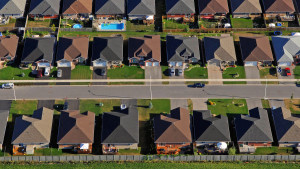
Figure 1 is a great representation of a suburban community, in my mind. Most houses are similar in their structural size, plot size, and features seen on the property. Suburbia is well envisioned by the general public, and because of this many companies actually made use of it to advertise products or services. These are not actually things that you need to take care of or buy, but because they are shown in parallel with a lifestyle that you want, or don’t want to be criticized of ignoring, then they are purchased. Another part of this exploitation is that jealousy, competition, and gossip between neighbors is also used. Refer to the following pictures from TV commercials that exploit our desires for suburban aesthetics.
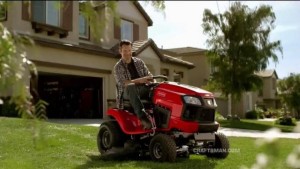
Figure 2 shows how the aesthetic of suburbia is used in today’s society. The company Craftsman created a commercial to advertise a riding lawn mower, and specifically chose a suburban setting. An important note about this commercial is that this quote is used: “it’s sure to get the neighborhood’s attention”. Suburbia was chosen as the setting for this commercial because Craftsmen wanted to exploit the dynamic between neighbors who want to “one-up” each other.
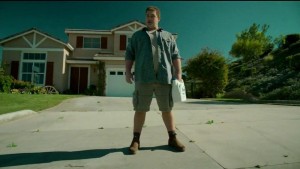
Several companies have developed commercials based on the suburban ideal of a perfect home without blemishes on the outside. This commercial represented by figure 3 shows a home owner being able to clear weeds from his driveway so that it looks great.

BEHR Paint’s commercial seen above does a good job at exploiting suburban residents because it pushes the message that you can stand out in your neighborhood by using their product. The commercial shows a home owner painting their deck, which then starts a chain of other painting projects by the neighbors of this original owner.
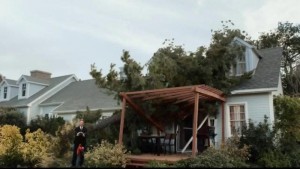
Allstate Insurance has a history of creating commercials portraying different events which can ruin your suburban life. Figure 5 shows the event of a tree falling on a house, and uses this idea to say that your precious home needs to be protected by them.
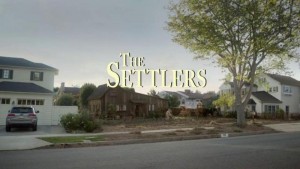
In DirecTV’s Settlers commercials, a suburban family is shown as breaking out of the allowed suburban lifestyle because they do not have DirecTV. This commercial plays into the idea that all neighbors living in the same suburban community need to have the same high-quality things.
References:

2 Comments. Leave new
That is interesting, I wonder what role competition in society plays. Everyone wants to win, and I find people often keep score over just about anything you can imagine, whether they’re conscious about it or not. Being able to validate yourself in American society is highly contingent on the quality and abundance of property, socially desirable friends, free time, money etc. Consumerism contains its own form of competition, where ones products become a means of expressing ones identity and worth.
I wonder if the suburb’s appeal stems from the direct forms of comparison it offers. If everyone lived in a different house, or if they all were taken care of by a landlord, one could not express their self worth through greener grass, fresher paint, thicker carpets, waxier cars or roof tiles. The opportunities for expressing your success are many, and directly comparable to your neighbors.
I thought that this Aesthetic was a really creative one! I never would have thought of using this, but after reading through your article I do notice this all over in commercials. In addition, I notice that it exceeds commercials and can also been seen in TV shows or movies. I’m jealous I never thought of it!